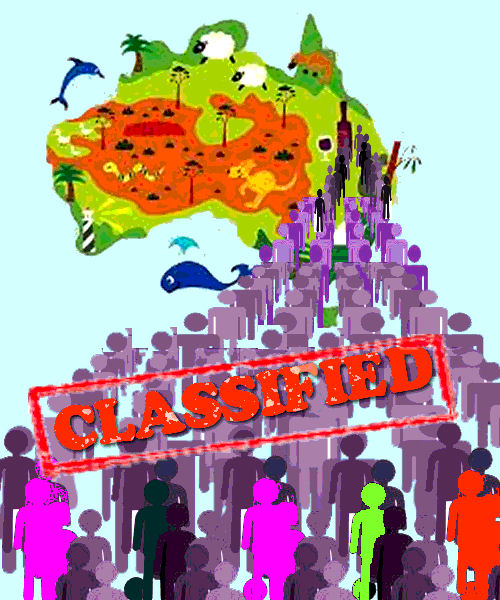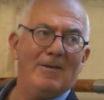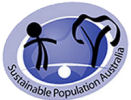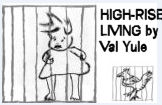The intergenerational report tries to scare us about ageing. It’s an old fear, and wrong - Article by John Quiggin
 The “problem” of Australia’s ageing population has been a concern for decades.
The “problem” of Australia’s ageing population has been a concern for decades.
 The “problem” of Australia’s ageing population has been a concern for decades.
The “problem” of Australia’s ageing population has been a concern for decades.
The corporate media speaks with one voice against Russia. There is NO mention that the U.S. commanded NATO military alliance has pumped tons of lethal weapons and U.S. advisors into Ukraine for eight years. (International Action Center)
Emergency Anti-War Demonstration
Stop NATO War on Russia! No Sanctions! No War!
Saturday, March 5 - 3pm
Times Square (North End, 7th Ave & 46 St)
 Daniel Ziffer's journalistic effort for the ABC Saturday May 9th, "Calls to cut immigration often ignore Australia's economic and social reality," was sparked off by Shadow Minister for Immigration and Home Affairs, Senator Kristina Keneally's week old article, calling for a review of the numbers of skilled temporary workers. The purpose of the review she was calling for was to give Australians who have lost their jobs due to coronavirus lock-down, first preference in the job market when "normality" returns. This mild and reasonable suggestion has met with a frenzy of opposing articles in the mainstream media, and this ABC concoction is yet another of these.
Daniel Ziffer's journalistic effort for the ABC Saturday May 9th, "Calls to cut immigration often ignore Australia's economic and social reality," was sparked off by Shadow Minister for Immigration and Home Affairs, Senator Kristina Keneally's week old article, calling for a review of the numbers of skilled temporary workers. The purpose of the review she was calling for was to give Australians who have lost their jobs due to coronavirus lock-down, first preference in the job market when "normality" returns. This mild and reasonable suggestion has met with a frenzy of opposing articles in the mainstream media, and this ABC concoction is yet another of these.

In summary, the article is making the points that our social reality is multi-ethnic, as indicated in a photograph; and that senator Keneally, because she is an immigrant, has no moral right to suggest lowering the numbers of skilled temporary overseas workers following the Covid 19 crisis. Ziffer wrote (in the article) that Australia's important money-earners include "opportunity and growth". He uses the example of a successful migrant who is making money from population growth, which in turn is meant to illustrate the need for ongoing immigration and population growth (!).
Ziffer also notes that GDP per capita is actually falling, wages are "stagnant", and that people feel they are going backwards. Yet he later says that "We've become vastly rich — economically as well as a society — because of our diverse make-up." (!) Which is it? Are we feeling left behind or are we vastly rich? Does it depend who we are?
His closing comments relate to his earlier criticism of Senator Keneally for having the temerity, as a migrant, to make a public statement on immigration settings, even though she is the Opposition spokesperson on Immigration and Home Affairs!
He finishes up lurching to the extreme of calling this, "closing the door" to immigration (which was not suggested by Ms Keneally nor any other published commentator in the news this week), saying this cannot be done, because it would mean all of us - apart from the just over 3% of us who are of Aboriginal or Torres Strait Islander heritage - would be denying our ancestors, since they were all migrants.
So, from the Ziffer perspective, Australia is locked into perpetual immigration, at a rate that cannot be questioned, by those who live here, those who come here, and even by the the Shadow Minster for Immigration and Home Affairs!
 You probably didn't fall for the latest western-corporate press nonsense about Russia and Syria 'brutally attacking Idlib Province in Syria', but you may wonder what is really happening. This is how it appears to us: Turkey and the US want to retain a foothold in Idlib, Northern Syria, along with their terrorist proxies, so that they can sell arms, loot the place, and cause chaos in the region. Turkey is playing Russia and the US for whatever it can get out of them. President Erdogan wants to reestablish the Ottoman Empire in his own name and that is part of his plan for trying to acquire territory in Syria. The US has put some sanctions on Turkey because it purchased weapons from the Russians recently, instead of from the US. Turkey is kind of like a major political prostitute for NATO and anyone else with a mutual short-term aim, including ISIS. The Syrian Arab Army (the Syrian government forces) and the Russians are trying to free the terrorists' human shields in Idlib and restore it to order. Against all odds, the Syrian government has managed to take back nearly all of Syria from the terrorists. (Syrian Arab Army Cleans 16 Towns in 24 Hours from NATO Terrorists in Idlib and Aleppo (8/2/20) by Arabi Souli | SyriaNews) This is probably because it is the only force that has massive support from Syrians. The syndicated western press, which trots out guff about Syria attacking its own people, is a mouthpiece for weapons manufacturers, war, US expansionism and neocolonialism, all major investment stocks. By the way, Iran has opened a criminal case against the US for using terrorists to destabilise the region and for multiple murders and war crimes. Meanwhile the US pretends that it is combatting aggression from Iran. See
You probably didn't fall for the latest western-corporate press nonsense about Russia and Syria 'brutally attacking Idlib Province in Syria', but you may wonder what is really happening. This is how it appears to us: Turkey and the US want to retain a foothold in Idlib, Northern Syria, along with their terrorist proxies, so that they can sell arms, loot the place, and cause chaos in the region. Turkey is playing Russia and the US for whatever it can get out of them. President Erdogan wants to reestablish the Ottoman Empire in his own name and that is part of his plan for trying to acquire territory in Syria. The US has put some sanctions on Turkey because it purchased weapons from the Russians recently, instead of from the US. Turkey is kind of like a major political prostitute for NATO and anyone else with a mutual short-term aim, including ISIS. The Syrian Arab Army (the Syrian government forces) and the Russians are trying to free the terrorists' human shields in Idlib and restore it to order. Against all odds, the Syrian government has managed to take back nearly all of Syria from the terrorists. (Syrian Arab Army Cleans 16 Towns in 24 Hours from NATO Terrorists in Idlib and Aleppo (8/2/20) by Arabi Souli | SyriaNews) This is probably because it is the only force that has massive support from Syrians. The syndicated western press, which trots out guff about Syria attacking its own people, is a mouthpiece for weapons manufacturers, war, US expansionism and neocolonialism, all major investment stocks. By the way, Iran has opened a criminal case against the US for using terrorists to destabilise the region and for multiple murders and war crimes. Meanwhile the US pretends that it is combatting aggression from Iran. See
Iranian lawyers file lawsuit against US over fighters killed in Syria, Sunday, 09 February 2020

[Article below originally published here: https://www.syrianews.cc/saa-cleans-16-towns-in-24-hours-from-nato-terrorists-in-idlib-and-aleppo/]
The Syrian Arab Army (SAA) responded to the threats of the Turkish pariah Erdogan to withdraw from the Syrian territories and restore al-Qaeda terrorists in the towns and villages recently cleaned from them, by cleaning 16 more towns and villages in the past day alone and continuing.
The Syrian army in a direct challenge to NATO’s Turkish Army and its neo-Ottoman leaders yesterday liberated eight towns in the eastern countryside of Idlib amid a collapse among the ranks of armed terrorists and managed to liberate part of the Aleppo highway, north of Saraqib, which is of great strategic importance because it is a meeting point between the two international roads Aleppo – Damascus, and Aleppo – Latakia.
SAA’s military operations continue on two axes in the north of the country to liberate the rest of the International Damascus-Aleppo M5 Artery, of which more than 85 percent have been liberated. The first axis starts from the southern Aleppo countryside and seeks to reach the strategic Hill of Al-Issa, and the second axis in the eastern countryside of Idlib, specifically from the city of Saraqib.
On the axis of the southern Aleppo countryside, the Syrian army managed to liberate the villages of Khalma, Hamera, Khan Touman, Zethan, and Berna, to arrive at the outskirts of the strategic Hill of Al-Issa, which is considered the point of ‘control by fire’ for the southern Aleppo countryside, and when it manages to liberate al-Ais Hill, its forces will be on the outskirts of the international road Aleppo- Damascus as a prelude to entering the town of Zarba located on this highway.
On the eastern axis of Idlib countryside, the Syrian Army forces deployed in the strategic city of Saraqib after its liberation, the most important city in that area after Maarat al-Numan, which the Syrian Army also liberated.
The SAA’s advance and liberation of large areas in the Idlib countryside has led to a rise in the number of besieged Turkish military posts to five in the rural Idlib and Aleppo.
The SAA’s entry into Saraqib came after the liberation of 17 villages, the most important of which were Al-Mardaikh, Dadikh, and Neirab, stretching to the town of Afis, north of Saraqib.

 The Melbourne launch of Tony’s latest book, being held at Readings in Hawthorn Monday, 25 November 2019, is likely to attract an interesting and critical audience. This book looks at the “last two action-packed years” – which is to say “false-flag packed” years, because it’s about the way Australian media and the Australian commentariat has enabled Imperial lies to spread and take hold in the population. The key ones Tony considers are the Syrian chemical weapons stories, the Skripal poisoning hoax, and Ukraine/Crimea. He centers his study around the disinformation operations of the Institute for Statecraft and the way he thinks it is operating in Australia to counter the “Russian point of view”.
The Melbourne launch of Tony’s latest book, being held at Readings in Hawthorn Monday, 25 November 2019, is likely to attract an interesting and critical audience. This book looks at the “last two action-packed years” – which is to say “false-flag packed” years, because it’s about the way Australian media and the Australian commentariat has enabled Imperial lies to spread and take hold in the population. The key ones Tony considers are the Syrian chemical weapons stories, the Skripal poisoning hoax, and Ukraine/Crimea. He centers his study around the disinformation operations of the Institute for Statecraft and the way he thinks it is operating in Australia to counter the “Russian point of view”.
The new book is, Russia and the West – the last two action packed years 2017-19 by Tony Kevin. ISBN 9780987319029 RRP $25 in stockist bookstores, or by direct post from author. Tony is himself an entertaining, down-to-earth and informative speaker, with a background in cold-war diplomacy in Russia.
It explores two main themes.
First, the persistent but generally unsuccessful efforts by Western (mainly US and British) government-supported disinformation agencies, increasing in intensity over the past three years, to discredit Russian foreign policy in the eyes of the Western public, as seen most clearly on issues of Syrian CW, Ukraine war, the Skripals affair and Russiagate.
Second, the rather more successful local efforts here to exclude the writer and his work as a foreign policy analyst from the public space, as a writer who overstepped the ‘Chomsky envelope’ of what is permissible to advance in public discussion. The desirability and possibility of seeking relaxation of tensions with Russia is apparently a do-not-touch subject in most Australian public discourse these days. The book explores how this situation came about, and its consequences, in the context of other , more prominent, current threats to freedom of expression in Australia.
Melbourne, Readings, 701 Glenferrie Road, Hawthorn, 25 November, 6 for 6.30 pm with online journalist Caitlin Johnstone @caitoz (entry free)

 This seminar will be at the Sustainable Population Australia (Victorian and Tasmanian branch) Annual General Meeting, Saturday September 29th 2018 at 2.30 pm, in the Hawthorn Library meeting rooms 3-4, 584 Glenferrie Rd, Hawthorn VIC 3122. Followed by afternoon tea.
This seminar will be at the Sustainable Population Australia (Victorian and Tasmanian branch) Annual General Meeting, Saturday September 29th 2018 at 2.30 pm, in the Hawthorn Library meeting rooms 3-4, 584 Glenferrie Rd, Hawthorn VIC 3122. Followed by afternoon tea.

Financial members of SPA may nominate for any committee position, President, Vice President, Treasurer, Secretary or committee member
Please email before 28th September to [email protected]
or write to: Returning Officer, Sustainable Population Australia, Victorian and Tasmanian branch, P.O.BOX 556 Hawthorn 3122 to arrive before Friday September 28th
Following the formal proceedings, you are invited to our public seminar
Presenters:
Dr. Katharine Betts, Adjunct Associate Professor of Sociology, Swinburne University, Author of “The Great Divide: immigration politics in Australia” and researcher for The Australian Population Research Institute. Dr. Betts will present her research into attitudes of the Australian public towards Australia’s current high immigration- driven population growth.
Ian Penrose, Melbourne’s first Yarra Riverkeeper, City of Melbourne 2010 Environmental Award winner, Boroondara citizen of of the year 2015, long term campaigner for population stabilization. Mr.Penrose will present his recent research into the way the media in Australia frames the population issue.
Free parking is available near the venue.
Please join us for afternoon tea following the seminar!
 This article or essay is a response to some typical growthist responses to the question posed by Mikhael Bornstein on a Quora forum here: "How long before our species realizes that overpopulation is the root cause to almost all of our global problems?. I describe how growthists narrow the range of their argument, what they leave out, and I analyse how they mistaken the hypothetical for the actual, acting as if the solutions they propose for obvious overpopulation problems, were already happening, when most probably never will.
This article or essay is a response to some typical growthist responses to the question posed by Mikhael Bornstein on a Quora forum here: "How long before our species realizes that overpopulation is the root cause to almost all of our global problems?. I describe how growthists narrow the range of their argument, what they leave out, and I analyse how they mistaken the hypothetical for the actual, acting as if the solutions they propose for obvious overpopulation problems, were already happening, when most probably never will.
The arguments I explore came from a US computer science professor, who wrote that he did not worry about population growth because he believed that the world is not overpopulated. His reasons for this were that human population is predicted to 'top out around 10 to 11 billion later this century', that there is plenty of food, energy and natural resources for 9-11 billion people, because these natural resources do not leave the earth and with advanced technology and inexpensive energy, we will be able to recycle them - except for fossil fuels, which he believes won't be needed beyond this century. He thinks that some 'under-developed' countries have an over-population problem because many of their governments are corrupt or anarchistic, impacting on food distribution and education. And, if women are not educated, they do not know about birth control or affordable birth control is not available. He thinks, however, that, in a few decades, most underdeveloped countries will be developed. [This is a belief that people have held since the 1950s or before,that it will all be fixed in a decade or two.] The professor thinks that the developing countries risk population decline and need immigration to maintain them. Those that are not growing, like Japan, need more adult diapers than baby diapers, he adds. He expresses concern that a bigger problem will be maintaining the world population in developed countries, without it decreasing too rapidly.
With all due respect, I find that Prof Farrages’s answer survives on the narrow range of values it canvasses. It is the values it leaves out that bring it down, along with the theoretical perspective that ignores how things are actually organised.
A major value it fails to take into account is the natural world and other species. This part of the world is suffering terribly because of human expansion and it cannot cope. Our species had close relationships with other species and the natural world for almost all of its existence. Now we are being deprived of that due to human population growth and expansion, along with the constant growth in consumerism that our modern economies rely on. This is my number one complaint about population growth.
There is also the terrible inhumanity of feedlots and battery farming, which are 'justified' economically because of the scale required to feed vast human populations. The effluent from this intensified farming wrecks rivers and the animals are often kept permanently on antibiotics because intensive farming raises infection risks.
Humans living in high-rises in dense cities are similar to battery hens in a number of ways. Their lack of outside activity causes myopia in children. High density means exposure to more infections, especially gastric, cold and flu. When these are treated with antibiotics they give rise to secondary problems, including antibiotic resistance and clostridium difficil, which can kill people, is becoming common, but often overlooked, especially in the elderly.
In theory there might be plenty of food, energy and natural resources for 9-11 billion people, but theory is not actuality. Food is not distributed according to need, but to income in our modern systems. Man does not live by bread alone, either.
There are many resources that are scarce, for instance rare earth elements. Cobalt is a major driver of criminal international exploitation and environmental destruction in the Congo. New ways of producing cobalt won't stop that because people can still make money by using slave labour and violence to get the cobalt cheaply. Except in a command economy, new technologies are only taken up when the old are exhausted if the old can be exploited cheaply.
Petroleum is not as plentiful as it was; much of what is now classed as petroleum is actually lease condensate, coal-oil, vegetable oil, and the last two have major consequences, one with pollution and the other by wrecking wildlife habitat and landscapes. We are destroying orangutan habitat for palm oil, just to name one horrendous consequence. If petroleum were plentiful in relation to our population growth and consumption, then we would not have petroleum wars in the Middle East, but we do, with US-NATO the main cause, because it does not want Russia, China or Middle Eastern Countries to have any control over fossil fuels, even those on their doorsteps. The US does the same thing to South American oil-producing states and US-NATO sponsors wars and warlords in places like Somalia because US-NATO presence there means they are close by the petroleum producing states.
Coal is being exploited at a rate and scale never seen before - because it is there, because it is cheaper. Cheap is what drives most economic activity, using slavery, stealing land, and creating wars. (By the way, my quals on this is that I am Sheila Newman Ed. The Final Energy Crisis, Pluto Press, UK, 1st and 2nd edition (co-edited), which were collections of different scientists writing about future prospects for energy.)
Yes, there are non-fossil fuel technologies, but they are not 'cheap'. Also they carry a lot of embodied energy in the materials that must be mined to create them. The reality is that they (a) require organisation that the desire for cheapness in the Anglosphere makes impossible (b) they can produce for smaller, lower consumption populations, but the savage capitalism that characterises the Anglosphere demands more and more people to consume more and more stuff - and that needs fossil fuel - so that brings us back to the lowest common denominator again.
Population growth costs in all kinds of ways. A bigger population means a smaller you. The discouragement of nationalism in favour of open borders by globalists means that nations cannot organise properly to take charge of their population numbers so that they live the lives they want, with the values they want, rather than suffering the consequences of theoretical arguments for more population growth.
The writer characterises third world overpopulation as partly caused by corrupt governments, but the governments in the first world are increasingly corrupt as well, hell-bent on inflating the cost of resources by driving up population growth. Democracy is disappearing in the Anglosphere, as I have implied already.
The writer repeats an old furphy of the 'aging population'. The aging population argument completely ignores the fact that the world's population, including that of almost all 'developed' countries, is bigger than it has ever been, by an order of magnitude. These huge numbers reflect the availability of cheap fossil fuels, which is now in question.
Once again there is a theoretical perspective that pretends that it is reasonable, cost-free, democratic and desirable to engineer population growth to not only maintain this unprecedented population behemoth, but to try and increase it! At some stage the number of children has to go down in proportion to the number of aged: other wise we grow forever and life will become more and more unaffordable.
Population pressure on land and housing prices pushes up the cost of living so high that it becomes too expensive for anyone who does not have high wages - which includes elderly people. This problem resolves itself if you stop importing economic immigrants and allow populations to adjust themselves downwards naturally. Then the prices of all vital resources, including housing and land, come down, and the cost of living with it. This is what has happened in Japan. People are actually returning to Japan because it is becoming such a nice place to live and the cost of living is going down.
One more thing: comparing children from 0-15yrs old with say, people over 65 is an unreal comparison, because it generalises between two cohorts of unequal size. Furthermore, as many young people would know, especially in 'developed' countries, young people may spend much longer as 'dependents' either on their parents or on the state, because they cannot get enough work and because education is increasingly expensive.
In my country girls are relatively well educated, but our population keeps growing due to mass economic immigration, invited by government and growth lobby.
This is also happening in the 'third world', for instance, Africa. African tribal borders and an associated orderly Africa have been destroyed and there are constantly immigrating and emigrating populations, many of them going in and out of cities, adding both to marriage and fertility opportunities (previously limited by need to find partners within your tribe) in much the same way as is happening in the countries of the first world that are receiving mass immigration.
Immigration is a fundamental driver of population growth. Natural populations in most species, including our own, are small and endogamous. That is, tribe members marry other tribe members. This endogamy is a fertility opportunity limiter. Mass immigration is a fertility accelerator because it stimulates exogamy - which means marrying outside your tribe, which means increasing the proportion of people in a society who reproduce, which was usually limited before our era of globalisation. (See Sheila Newman, Demography Territory Law: The Rules of Animal and Human Populations).
This theoretical perspective is common to the growth lobby, which tries to minimise problems by talking about how they might be fixed one day as if that were actually happening. Where I live, population growth in Australia is causing massive problems and 74 % of Australians want government to stop artificially engineering population growth (60+ % fueled by mass economic immigration and 80% of New South Wales' last year). See Betts & Birrell: Australian voters’ views on immigration policy: Full Report. One of the main reasons people want population growth to stop is due to exponentially rising traffic congestion, housing prices, homelessness, and changes to laws to remove peoples' right to object to draconian unbelievably expensive infrastructure 'solutions' that don't even solve the problems, but make engineering firms rich and cause engineering technofix ideology to dominate. The growth lobbyists (property developers and financiers - plus upstream and downstream industries) now dominate the mass media and the government and constantly pretend that all this can go on if we 'provide infrastructure'. Part of what is wrong with that is that property development is carried out on bushland and green spaces because they can be bought more cheaply and then rezoned. It also competes with things communities created for themselves. For instance there has been a rash of closing down 50m community swimming pools because population growth has forced up the ‘value’ of the land and developers think that they can make more money by building for more intensive occupaton, using what was public land.
The reality is land-speculation, although the theory is 'smart growth'. And we don't want more infrastructure or more population, because infrastructure is closing in on us even though inadequate to cope with the growth. There are actually systems that deal with planning better, such as France's, but those systems also discourage population growth, which is rightly seen as a cost to the state, which develops the land and subsidises the housing. (On France see Sheila Newman, The Growth Lobby in Australia and its Absence in France:
 Kindly and patriotic Australian businessman, Dick Smith, has been very poorly treated by the ABC on episode 158 its The Drum program. This is a very serious problem because, in mistreating Dick Smith, the ABC misinforms Australians on a subject of vital and democratic importance. The ABC seems now undifferentiated from the commercial TV channels with regard to reporting on population. Apparently the ABC has actually banned Dick Smith from the program. The letter inside, from Dick Smith to Ms Julia Baird, the Presenter of The Drum, asks for right of reply. We have embedded Dick Smith's video ad at the beginning of the text so you can judge for yourself whether Ms Baird has a leg to stand on. To us it is obvious that what has caused the media to go after Dick Smith is the fact that he has linked growthist population policy to Australia's reigning politicians and they are going to try to destroy him.
Kindly and patriotic Australian businessman, Dick Smith, has been very poorly treated by the ABC on episode 158 its The Drum program. This is a very serious problem because, in mistreating Dick Smith, the ABC misinforms Australians on a subject of vital and democratic importance. The ABC seems now undifferentiated from the commercial TV channels with regard to reporting on population. Apparently the ABC has actually banned Dick Smith from the program. The letter inside, from Dick Smith to Ms Julia Baird, the Presenter of The Drum, asks for right of reply. We have embedded Dick Smith's video ad at the beginning of the text so you can judge for yourself whether Ms Baird has a leg to stand on. To us it is obvious that what has caused the media to go after Dick Smith is the fact that he has linked growthist population policy to Australia's reigning politicians and they are going to try to destroy him.
Dick Smith Fair Go 'Grim Reaper' TV Ad - 1min from Dick Smith Fair Go on Vimeo.
7 September 2017
Julia Baird Presenter The Drum ABC
Dear Julia
RE: CONTINUING BIAS ON THE ABC
What an outrageous segment on The Drum last night misrepresenting my views on population growth and immigration. This segment did everything to confirm that Mark O’Connor’s chapter in his book Overloading Australia entitled ‘Media bias and ABC blues’ is correct.
Your researchers didn’t even make the most basic enquiries by lifting the phone and talking to me about the statements that were attributed to me.
I note you started the segment with a piece from another TV channel with the large text “Anti immigration ad.” In fact, I have never had an anti-immigration ad.
I spent $1 million on a “Grim Reaper” style advertising campaign explaining that when politicians say growth, they actually mean endless growth. This will either result in growing inequality, or possibly terrible consequences for our society.
Those views are not mine alone, but reflect the views of many educated people from around the world.
The reason I have never run and anti-immigration ad is that I am pro-immigration. I always have been. It is the reason Australia is such a fantastic country.
Yes, upon advice from experts, I believe we should return to the long-term average of about 70,000 per year – as I’m told this will mean there is a greater chance for a sustainable future, and proper full-time careers for our children and grandchildren.
70,000 per year is approximately the immigration number when Paul Keating was Prime Minister, and I’m told is high per capita by world standards.
I have consistently called for a substantial increase in the humanitarian intake. This would be clear if any of your researchers had even bothered to glance at the Fair Go manifesto, or if you had given the panelists the document to look at.
Your segment went downhill from there. The erroneous caption “anti-immigration ad” confirmed exactly what I had been told by politicians about the ABC. They have said to me:
“Dick, you are absolutely right. We need a population policy, but if I ever mentioned it I would be crucified by the ABC. They would immediately link my comment to being opposed to immigration…”
Not at any time during the whole segment did you actually discuss what I am on about. That is, it is not possible to have endless growth in a finite world.
Amazingly, your researchers or producers didn’t even bother to brief Alan Kirkland, the CEO of Choice, about my $1 million “Grim Reaper” television campaign. He actually said on your segment:
“I didn’t know about this campaign until the whole story broke about the ABC banning him.”
Once again, that proves exactly what Mark O’Connor is saying in Overloading Australia. That is, ABC television news and current affairs (and, I will add, The Drum), constantly show bias on the growth issue.
Every one of your panelists were clearly pro endless growth. I particularly loved the comment by Alan Kirkland:
“So we are getting a lot out of migration at the moment, geared predominantly towards delivering what employers need, and that is what fuels the economy, and it has been one of the most consistent forces driving economic growth in Australia, decade upon decade.”
Of course he doesn’t mention for an instant – nor do you, and I would have thought you would have as you are a mother of young children – that with automation and robotics there are real concerns that there will be enough jobs to give a decent full-time career to our young people in the future.
That is why, in my Fair Go manifesto, I have canvassed the idea of a living wage – not at all mentioned by any of your people.
Then of course there is the tired old point from Alan Kirkland:
“We absolutely need to have this debate because I guess the missing piece is saying that population has grown that that has fuelled economic growth but we have really dropped the ball on infrastructure and on housing in particular.”
Yes, that is the Harry Triguboff belief. You just need to spend more money on infrastructure and housing, and the endless growth will be solved.
Has Mr Kirkland forgotten that our high schools are now moving into high rise, and children are living like termites rather than free range with a back yard and a cubby house?
Georgina Downer from the Institute of Public Affairs, reckons, “It is quite rich for Dick Smith to say he is being ignored,” and then goes on saying that I pitched my whole argument about immigration “being incredibly damaging” when this is clearly not true.
Julia, why didn’t you bring up at any stage the issue that I am talking about? It is very simple. You can’t have endless growth in population and the use of resources and energy in a finite world. There is no discussion on this because the politicians have been totally intimidated because they may be branded “anti-immigration.”
It appears that the briefing note handed to panellists said that this was a “stunt.” Nothing could be further from the truth. Since producing my documentary on population, which was run on the ABC, I have worked constantly on this important issue that affects all Australians.
Of note, the documentary was commissioned not by television news and current affairs, but by a completely different ABC department, and the man who did the commissioning did not have his contract renewed.
Julia, you, like every mother, has a population plan – you didn’t have 20 kids. Australian families are sensible and have the number of children to whom they can give a good life. Why then shouldn’t we have a plan for the aggregate that says, “Let’s have the number of people in Australia that we can give a good life to.”
I would say that is pretty simple, but it is not discussed in any way – driven by the fear of politicians into being dishonestly distorted in their views, as your segment did to me last night.
Most importantly, I note the statement by marketing strategist Toby Ralph:
“I am very concerned that he is a guy who won’t vote for a Party that he is about to give $2 million to, and that seems to me a contradiction that you can’t fully move past. I think he needs a nice long lie down and a think about that.”
One simple phone call by your researchers to me would have informed them that I have never had any intention of making a donation to One Nation in relation to this issue. It is a complete fabrication.
I have attached a copy of the chapter in Overloading Australia entitled Media bias and ABC blues. I ask you to read it, and today at 4.30 pm I will be at the ABC Headquarters at Ultimo, waiting downstairs, and I expect to be given a chance to go on air to have the truth told.
I should point out that eight out of ten Australians agree with my views that we should have open discussion and a population plan – not endless growth, driven normally by endless greed.
Regards
Dick Smith
Tonight on The Drum: Julia Baird is joined by marketing strategist Toby Ralph, CEO of CHOICE Alan Kirkland, Georgina Downer from the Institute of Public Affairs and Fairfax national affairs editor Mark Kenny. #TheDrum,
Recent comments